10 Best System Manhwa Where Characters Get Insanely Strong [2025]
System manhwa exploded onto the scene when “the Gate” appeared ten years ago, connecting our world with a realm of magic and monsters. If you’ve ever been captivated by the journey of a character going from zero to hero, you’re certainly not alone.
I’ve been hooked on these stories ever since Solo Leveling introduced us to Sung Jin-Woo, who transformed from the “World’s Weakest” hunter into an unstoppable force. In fact, this particular manhwa became so popular that it significantly boosted the entire webcomic industry when it was serialized in 2018. Consequently, many readers like us have been searching for more manhwa like Solo Leveling with similar narratives and character progression.
What makes these leveling up manhwa so addictive? At their core, they incorporate game-like features such as stat building, dungeon crawling, and tower climbing. If you’ve played games like Diablo or Dungeons and Dragons, you’ll immediately recognize these systems, though here they’re woven into compelling stories rather than gameplay. Additionally, most of these titles feature overpowered main characters that we can’t help but root for.
For this list, I’ve gathered the 10 best system manhwa where characters evolve from ordinary to extraordinary. Whether you’re looking for manhwa to read after finishing Solo Leveling or just diving into this genre, these recommendations will satisfy your craving for progression-based stories with incredible character development.
Solo Leveling
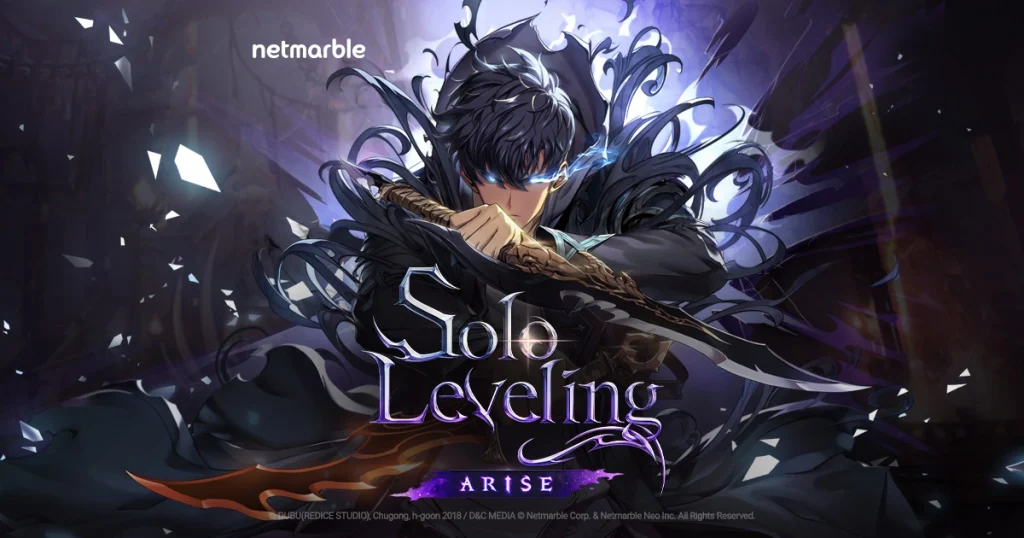
Image Source: Solo Leveling:ARISE
At the top of any system manhwa list sits Solo Leveling, which introduces us to a world where supernatural hunters battle monsters emerging from interdimensional gates. Originally penned by Chugong in 2016, this South Korean web novel quickly captivated readers before its 2018 webtoon adaptation illustrated by Jang Sung-rak (Dubu) propelled it to global fame.
Solo Leveling premise
The story follows Sung Jinwoo, initially ranked as an E-Class hunter with magical strength of only 10—whereas most E-Ranks measure around 70 in magical power. Dubbed “The Weakest Hunter of All Mankind,” Jinwoo struggles to earn enough from low-level dungeon raids to support his hospitalized mother and sister’s education.
Everything changes during what should be a routine D-Rank dungeon raid. Jinwoo’s party discovers a hidden chamber—a deadly Double Dungeon—where most members perish. As Jinwoo faces certain death after sacrificing himself so others could escape, time freezes. A mysterious message appears, offering him the role of “Player.” Upon accepting, Jinwoo awakens completely healed, forever altered by what’s known as the System.
Solo Leveling leveling system
The System functions like an elaborate RPG interface visible only to Jinwoo. Unlike regular hunters whose abilities remain fixed after awakening, this program enables continuous growth through:
- Quests & Rewards: Daily challenges and dungeon-specific missions that grant skills, stat points, and items
- Stat Allocation: Points distributed across Strength (attack power), Agility (reaction speed), Stamina (HP), Intelligence (MP), and Sense (perception)
- Inventory & Store: Unlimited storage space and an in-game shop where Jinwoo spends gold earned from defeating enemies
- Skills System: Both passive abilities that activate automatically (like Kandiaru’s Blessing for health regeneration) and active skills requiring conscious activation
Furthermore, the System creates personalized dungeons solely for Jinwoo’s training. The Demon’s Castle exemplifies this—a private S-Rank instant dungeon where he completes daily quests without risking exposure of his rapidly growing powers.
Solo Leveling character progression
Jinwoo’s evolution throughout the series is nothing short of remarkable. Initially struggling against even the weakest monsters, his combat abilities improve dramatically with each level gained. The System bestows various skills including Stealth (concealment), Bloodlust (intimidation), and eventually his signature ability—Shadow Extraction.
After defeating the red knight Igris in a mysterious instant dungeon, Jinwoo undergoes a class change to Necromancer, gaining the power to resurrect defeated enemies as shadow soldiers in his growing army. This marks a pivotal moment in his transformation toward becoming the Shadow Monarch.
His physical capabilities likewise transcend normal hunter limitations. While standard hunters cannot change their rank regardless of training, Jinwoo’s strength, speed, and magical reserves expand exponentially. By the time he faces the Ant King on Jeju Island, he’s powerful enough to defeat enemies that would terrify even S-Rank hunters.
Although initially keeping his powers secret, Jinwoo eventually undergoes official re-evaluation, shocking the Hunter Association with his unprecedented growth from E to S-Rank. His journey represents the ultimate power fantasy—a systematic progression from society’s weakest member to potentially its strongest protector.
Second Life Ranker
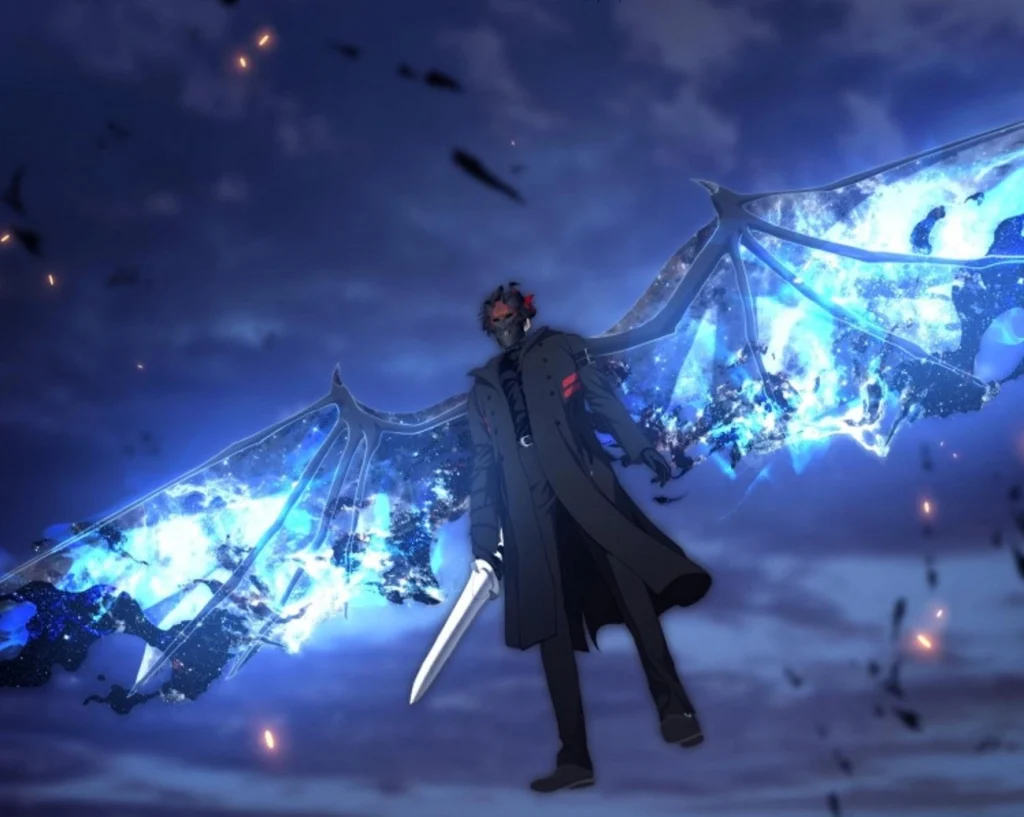
Image Source: Reddit
Revenge drives the narrative in Second Life Ranker, a compelling system manhwa that follows Cha Yeon-woo as he enters a mysterious tower to avenge his twin brother’s death. After his brother’s unexplained disappearance five years ago, Yeon-woo discovers a pocket watch containing a hidden diary that reveals the truth about what happened.
Second Life Ranker premise
The story begins when Yeon-woo finds his missing brother’s pocket watch, which contains a detailed diary explaining everything that happened to him. His twin, Jeong-woo, had received a mysterious text message offering to grant any wish. After initially dismissing it as a prank, Jeong-woo started having dreams about climbing a tower – which turned out to be a real place filled with elves, dwarves, and monsters. He learned that anyone who could reach the ninety-ninth floor would receive a tremendous reward, specifically an “Elixir” that could heal his sick mother.
Instead of telling his brother about this opportunity, Jeong-woo ventured alone into this magical realm called the Obelisk. There, he formed a powerful team and progressed well until betrayal led to his death. Through the diary, Jeong-woo shared every detail of his journey, including the names of those who betrayed him.
Upon hearing his brother’s recorded voice, Yeon-woo undergoes a physical transformation. His body changes as mana fills his system, and he acquires all of his brother’s skills and abilities. A mysterious system appears before him, marking his new identity as a Player with the call sign “Cain.”
Second Life Ranker leveling system
Unlike other system manhwa, Second Life Ranker features a complex progression structure revolving around traits and skills. Players gain abilities through the tower’s system, with ranks ranging from E (lowest) to S (highest).
Yeon-woo’s current traits include:
- Mana Friendly: Provides easier access to environmental mana, increasing recharge speed
- Ascetic: Grants severe self-discipline and abstention from indulgences
- Dark Lord: A unique trait obtained at advanced levels
- Giant Demonic Divine Draconic Body: An evolved form combining the supernatural qualities of dragons, demons, gods, and giants
Moreover, his skills include Physical Resistance, Open Speech, Spirit of the Abyss, and the rare S-rank ability “Perceiving the Heavens.” This last skill represents one of the “Six Godly Perceptions,” allowing Yeon-woo to see through everything and reflect his inner truth.
The system also includes runes that Yeon-woo engraves on his body to enhance his capabilities, such as Magic Strengthening, Strength, Haste, Blink (teleportation), Healing, and Recovery.
Second Life Ranker character progression
Specifically, what makes Yeon-woo’s development fascinating is his transformation from a hard-working, determined individual to an increasingly powerful force. Unlike his naturally gifted younger brother, Yeon-woo achieves results through persistent effort and tactical genius.
As a result of his military experience in Africa, Yeon-woo possesses exceptional tactical skills and strategic thinking. These abilities prove crucial as he navigates the tower’s dangers and outmaneuvers powerful clans like Red Dragon, Elohim, and Blood Land. His analytical mindset remains calm even against formidable opponents.
Throughout his journey, Yeon-woo demonstrates surprising acting skills and manipulation abilities, convincing veteran high-rankers like Bahal, Marquis Caliburn, and Baron Lao of his false intentions. This talent, possibly enhanced by his “Cold Blooded” trait, becomes a powerful tool in his revenge quest.
Furthermore, as Yeon-woo climbs the tower, he develops an interesting personality quirk – terrible naming sense for his creatures, calling a newborn Phoenix “Chirpy” and attempting to name his Magical Dragon “Growl” or “Roar.” This childish side contrasts sharply with his otherwise calculating nature, causing his allies to sometimes view him as an “inhuman monster” or “soulless killing machine.”
Ultimately, Second Life Ranker presents a protagonist whose greed and avarice drive him to maximize gains from every floor and confrontation, strengthening himself relentlessly as he pursues vengeance for his brother.
Overgeared
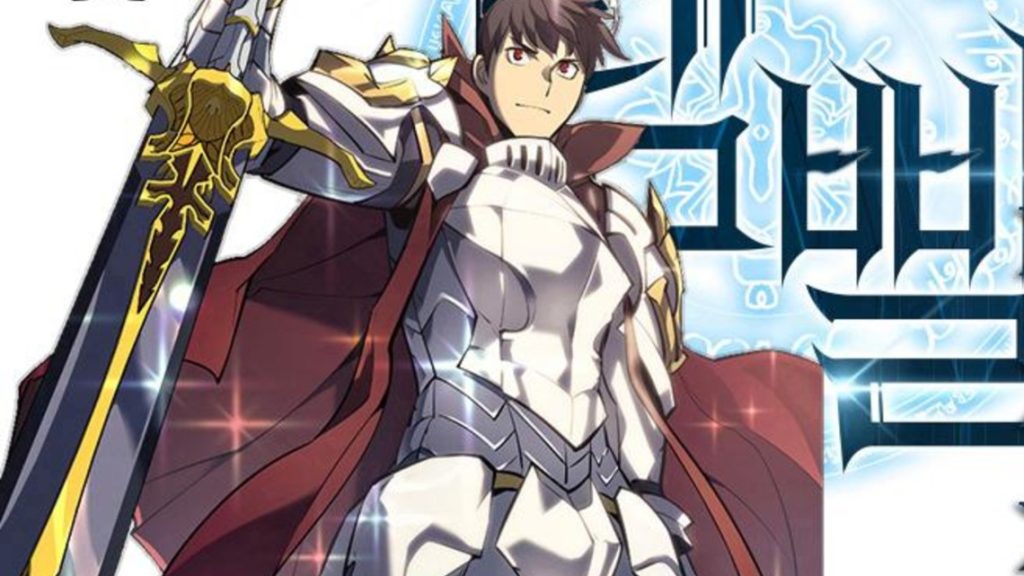
Image Source: ComingSoon.net
In the vast landscape of system manhwa, Overgeared stands out for its unique focus on crafting and production rather than just combat prowess. This popular Korean fantasy series written by Park Saenal explores what happens when an unlucky gamer stumbles upon a legendary class that transforms his virtual life—and eventually his real one.
Overgeared premise
Set in a future Earth, Overgeared revolves around a virtual reality game called Satisfy—developed by the world’s top genius scientist Lim Cheolho alongside other world-class scientists. The main character, Shin Youngwoo (in-game name: Grid), begins as a debt-ridden, unlucky player who can barely afford his gaming capsule. His fortune changes dramatically when he discovers Pagma’s Rare Book during an S-class quest, granting him a legendary blacksmith class.
Notably, this stroke of luck comes with significant drawbacks—his level drops to -1 after failing an SS-rank quest. Essentially, Grid must rebuild from rock bottom, using his newfound legendary crafting abilities to climb the ranks in Satisfy. The game’s economic impact on the global economy is substantial, creating a world where virtual achievements translate to real-world success.
Overgeared leveling system
Unlike other system manhwa, Overgeared’s progression revolves primarily around crafting rather than combat. As a legendary blacksmith, Grid gains several core abilities:
- Blacksmith’s Craftsmanship – for creating items
- Blacksmith’s Appraisal – for evaluating materials and items
- Blacksmith’s Patience – enhancing focus during crafting
- Blacksmith’s Disassembly – breaking down items
- Blacksmith’s Repair – fixing damaged equipment
Despite starting with these abilities, Grid must create everything manually—a limitation others would find frustrating yet perfectly matches his inhuman ability to focus on a single task for days without breaks. Nonetheless, Grid eventually expands beyond pure crafting, gaining weapon mastery and magic abilities as he progresses.
Overgeared character progression
Possibly the most fascinating aspect of Overgeared is Grid’s personal growth. Initially described as “timid, flaky, selfish, only cares about money, and easily feels jealous of others”, his personality undergoes remarkable transformation throughout the story. His early chapters reveal a character many readers found difficult to like—yet this deliberate character flaw becomes the foundation for meaningful development.
Through interactions with NPCs and other players, Grid gradually matures from someone focused solely on personal gain to a genuine leader. His relationships with characters like Khan, Irene, and Jude reveal a softer, more compassionate side developing beneath his greedy exterior. Subsequently, his growth isn’t limited to personality—his combat abilities evolve from “simple and ignorant” methods to sophisticated techniques that make him nearly unrecognizable from his earlier self.
Fundamentally, what sets Overgeared apart from other system manhwa is how Grid’s growth feels earned through consistent effort rather than miraculous power-ups. His legendary blacksmith abilities, initially seen as a burden, become his greatest strength as he forges his path in both Satisfy and reality.
The Player Who Can’t Level Up
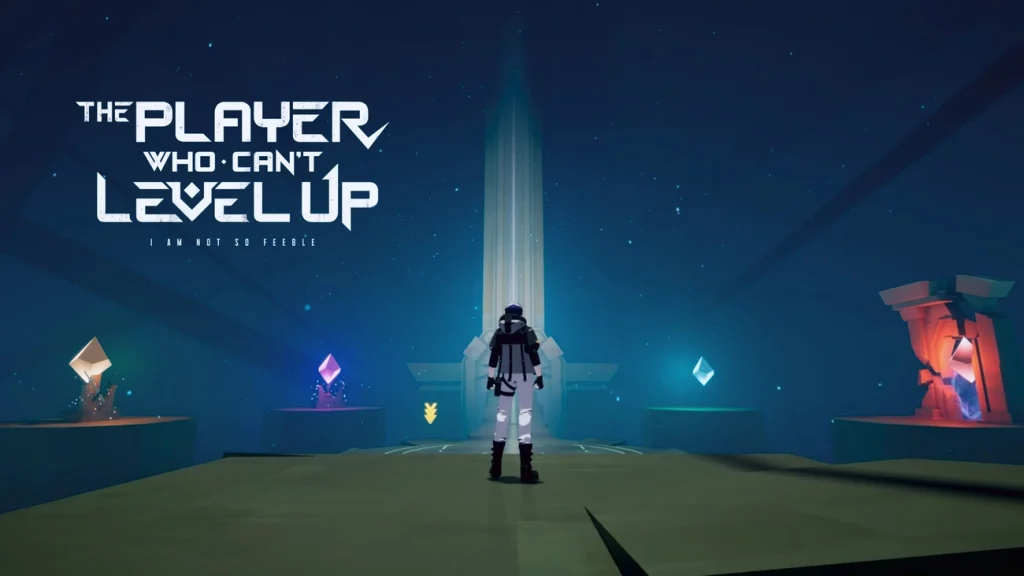
Image Source: Steam
Unlike most power fantasy stories, The Player Who Can’t Level Up introduces a frustrating twist to the system manhwa genre by focusing on a character seemingly denied the core mechanic that defines these stories. First published in 2020, this manhwa offers a refreshing take on progression stories by exploring what happens when the system itself becomes the obstacle.
The Player Who Can’t Level Up premise
The narrative follows Kim Gi-Gyu, an ordinary college student who gains access to a mysterious system in a world where hunters battle monsters emerging from dungeons. Unfortunately, Gi-Gyu discovers his status window displays an unusual message: “Unable to level up.”
This devastating limitation places him at a severe disadvantage compared to other hunters. Even after risking his life fighting monsters, Gi-Gyu remains stuck at level 1 while watching others grow stronger with each victory. Nevertheless, his determination pushes him to find alternative paths to strength despite this seemingly insurmountable limitation.
The Player Who Can’t Level Up leveling system
What truly sets this manhwa apart from others is its unique approach to character development. Generally, the protagonist’s system consists of:
- Status Window: Displays Gi-Gyu’s fixed level 1 status alongside other stats
- Skills Acquisition: Instead of leveling traditionally, Gi-Gyu must rely on obtaining and mastering specific skills
- Attribute Enhancement: Direct improvement of base attributes without level increases
- Item Dependency: Greater reliance on equipment and consumables than typical hunters
Indeed, this inverted progression model forces Gi-Gyu to become more strategic and resourceful than protagonists in manhwa similar to Solo Leveling who can simply overpower challenges through level grinding.
The Player Who Can’t Level Up character progression
Accordingly, Gi-Gyu’s growth journey differs substantially from typical leveling up manhwa protagonists. His development revolves around maximizing efficiency rather than raw power scaling. Initially frustrated by his limitation, Gi-Gyu gradually shifts from self-pity to determined resourcefulness.
First, he must overcome the psychological barrier of accepting his unique condition. Second, he learns to capitalize on specific skills and techniques that don’t require traditional level progression. Third, his tactical thinking becomes his greatest weapon.
Throughout the story, Gi-Gyu transforms from an underdog struggling to survive into a capable hunter whose understanding of the system’s limitations becomes his greatest advantage. His journey embodies the classic underdog story that resonates with readers, making this manhwa to read for anyone tired of overpowered protagonists who face little genuine adversity.
Leveling With the Gods
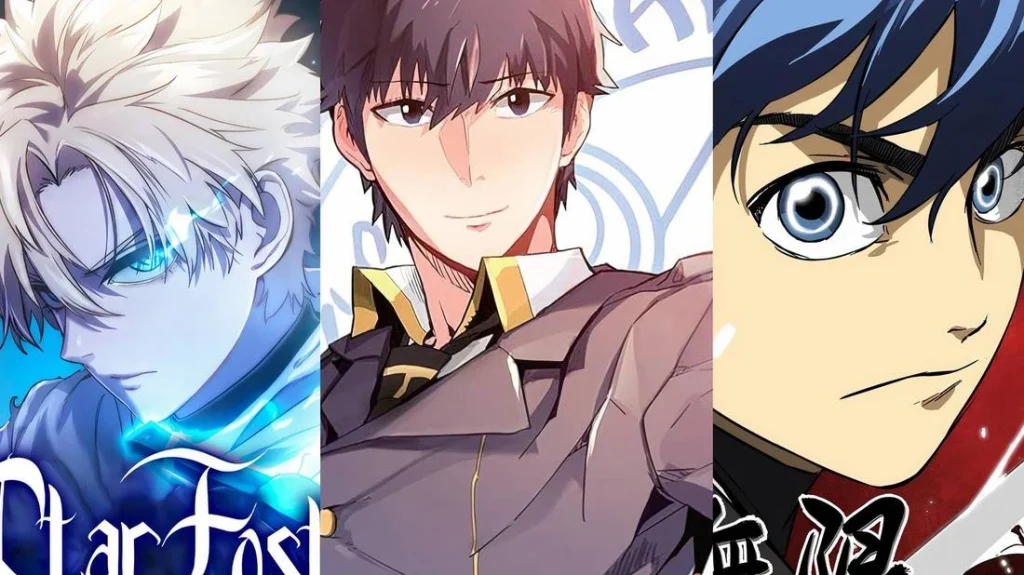
Image Source: Game Rant
Among time-travel system manhwa, Leveling With the Gods takes a uniquely apocalyptic approach. This popular Korean fantasy series follows Kim Yuwon, a powerful hunter sent back in time after humanity’s devastating defeat against the mysterious Outer Gods.
Leveling With the Gods premise
The story begins at the end – after losing a catastrophic war against incomprehensible Outer Gods, Kim Yuwon is granted a second chance. Through the power of Chronos, Yuwon travels back to reset the timeline. Upon his return, he focuses on one goal: growing stronger than before to annihilate the Outer Gods.
Unlike ordinary regression stories, Yuwon enters the mysterious Tower with full knowledge of future events. This massive structure contains countless floors, each presenting unique tests that players must overcome to advance. For instance, the 41st Floor requires gathering summoning stones to defeat increasingly powerful demons.
Leveling With the Gods leveling system
Primarily, what distinguishes this manhwa is its complex dual progression system:
The Player System categorizes power through four main stats:
- Strength – enhances physical attack power
- Dexterity/Agility – improves movement and reaction speed
- Stamina/Constitution – increases health and revitalization
- Perception – sharpens senses beyond normal human limits
Simultaneously, the Tower features Divinity – a transcendent power that exists beyond the System’s control. Divine Power represents the strength needed to use a “Name,” which players can only acquire through the Ascension Trial on the 100th Floor. This represents the process of gaining Divine Status through the myths written while climbing the Tower.
Points and levels fundamentally determine a player’s capabilities. While leveling becomes exponentially harder (virtually impossible through normal hunting past level 60), floor-clearing rewards potentially offer greater benefits than ten stat points.
Leveling With the Gods character progression
Fundamentally, Kim Yuwon stands out among system manhwa protagonists through his meticulous planning. He never acts without certainty, always formulating strategies that maximize his growth. His approach to power acquisition involves relentless grinding – gaining every possible stat point as long as monsters remain to be defeated.
Originally ranked 4th before his regression, Yuwon maintains this elite status while methodically preparing for the coming conflict. His journey involves gathering former colleagues (including Hephaestus, Heavenly Demon, Merlin, and Hercules) who fought alongside him in the failed future.
Throughout the Tower’s challenges, Yuwon develops various skills, particularly focusing on enhancing his Arcane Power and Constitution stats – crucial for utilizing his powerful Sensory Field ability. This determination to overcome the seemingly insurmountable threat of Outer Gods drives one of the most engaging progression stories in the leveling up manhwa genre.
Return to Player
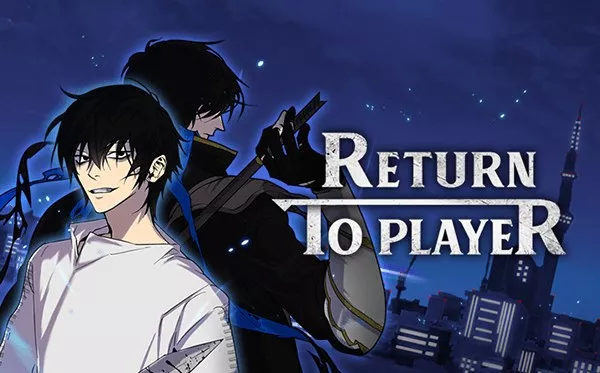
Image Source: www.nautiljon.com/
Time loops and second chances define the unique premise behind Return to Player, a system manhwa that begins at humanity’s end. This compelling story explores what happens when the last survivor gets an opportunity to rewrite history through a mysterious game interface.
Return to Player premise
The narrative centers on Sehan Kim, who achieves the “Bad End” as humanity’s final survivor after a catastrophic game imposed by the gods. In his darkest moment, the game interface offers him a second playthrough option. After accepting it, Sehan finds himself transported back to the day when everything began.
Due to his complete knowledge of future events, Sehan approaches this new opportunity with calculated determination. His goal is straightforward—change the disastrous outcome by making different choices. In his first playthrough, Sehan admits he was selfish and opportunistic, caring only about survival. Now, he works methodically to save everyone while avoiding enemies he knows will emerge.
Return to Player leveling system
In essence, the Return to Player system operates on multiple interconnected components:
- Status Window: Displays Sehan’s statistics across four core attributes—Vitality, Strength, Agility, and Mana
- Skills: Categorized as Active or Passive, with tiers ranging from F (lowest) to S (highest)
- DLC Store: Unlocked after clearing the “single mode,” allowing Sehan to spend points accumulated from his first playthrough
- Constellations: Higher powers that grant special abilities, including the powerful Crow Constellation
Fundamentally, this system differs from other manhwa by featuring changing quest conditions. Starting with the third quest, Sehan discovers not all players receive identical objectives. Furthermore, the system responds to his actions by sending increasingly difficult monsters his way—proof that his decisions are affecting the timeline.
Return to Player character progression
Sehan’s development throughout the story highlights his transformation from a survival-focused individual to someone determined to change fate. In his first playthrough, he operated without moral boundaries, focusing solely on staying alive. Currently, in his second chance, Sehan looks back at his former selfishness with disgust.
His tactical approach shows remarkable growth—he meticulously plans encounters based on future knowledge yet remains adaptable when timelines shift. Given that Sehan has already experienced the apocalypse, he demonstrates exceptional composure in crisis situations.
Ultimately, Sehan becomes an effective leader who positions guild members for optimal success while taking on the most crucial tasks himself. This strategic mindset, combined with his growing abilities like Eye of the Mind and Shadow Rush, makes Return to Player a fascinating entry in the leveling up manhwa genre.
The Tutorial Tower Is Too Tough
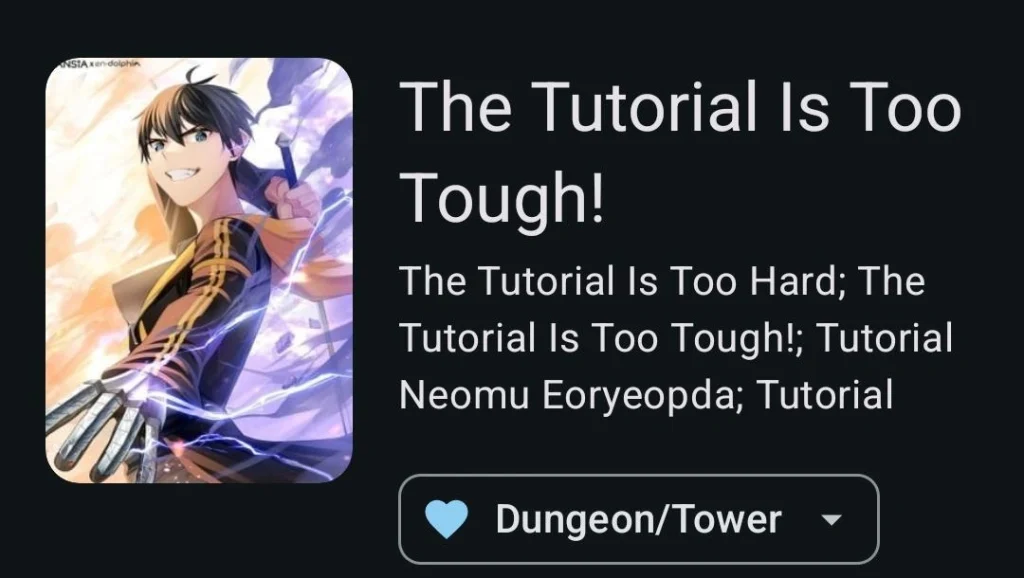
Image Source: Reddit
Mental fortitude takes center stage in The Tutorial Tower Is Too Tough, a psychological horror-infused system manhwa that explores the devastating effects of isolation. Originally titled “The Tutorial Is Too Hard” in Korean, this series follows Lee Ho-jae, a former professional gamer whose career ended abruptly, leaving him aimless and homebound.
The Tutorial Tower Is Too Tough premise
One fateful day, Ho-jae receives a mysterious invitation: “Will you enter the Tutorial World?”. After accepting, he faces a critical choice of difficulty levels—Easy, Normal, Hard, or Hell. Feeling confident from his gaming background, Ho-jae selects Hell difficulty, immediately regretting his decision upon discovering it has a mere 0.01% survival rate.
The narrative follows Ho-jae’s desperate attempt to escape this deadly tutorial, which traps players until they complete all floors or perish trying. First thing to remember, the original web novel presents a darker, more psychologically intense experience than its manhwa adaptation, which adopts a somewhat lighter tone. Throughout his journey, Ho-jae encounters various gods who observe challengers like viewers watching an internet broadcast, occasionally offering assistance or creating additional challenges.
The Tutorial Tower Is Too Tough leveling system
Ho-jae’s progression works through floor completion rather than traditional level gains. Each floor presents unique challenges that test different aspects of a player’s abilities:
- Mental fortitude against isolation
- Combat prowess against increasingly difficult monsters
- Problem-solving skills with life-or-death consequences
As a matter of fact, the tutorial functions as a training ground where gods observe human potential, with different deities showing interest in specific challengers. The system provides feedback through quest windows, sometimes revealing the gods’ reactions to Ho-jae’s actions.
The Tutorial Tower Is Too Tough character progression
Perhaps most compelling is Ho-jae’s psychological transformation throughout his journey. Initially starting as a normal person trying to survive, prolonged isolation begins to erode his humanity. Hereafter, he starts harming himself to survive, then continues to appease his growing inner emptiness.
The manhwa vividly portrays Ho-jae’s efforts to preserve his sanity through hobbies like knitting, amid growing insomnia and other mental health challenges. Despite these efforts, his mind gradually fractures under the extreme pressure of Hell difficulty.
His journey on the 60th floor represents a crucial transformation point where past and present storylines converge, revealing how drastically different Ho-jae has become from his former self. At this juncture, readers finally understand the full scope of his psychological evolution from ordinary gamer to something altogether more complex and disturbing.
Solo Max-Level Newbie
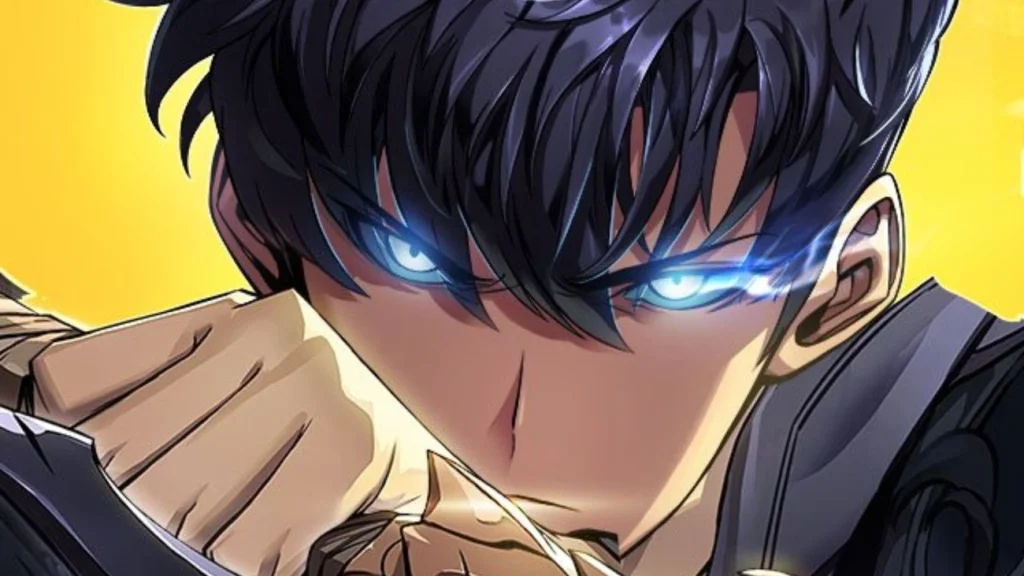
Image Source: Seakoff
Gaming expertise becomes the ultimate superpower in Solo Max-Level Newbie, a unique system manhwa where dedication to mastering a game pays off in spectacular fashion.
Solo Max-Level Newbie premise
Kang Jinhyuk, an orphan who became a gaming Nutuber, dedicated 11 years of his life to the nearly impossible “Tower of Trials” game. After countless trial-and-error attempts, he achieved what no one else could—completing the game. His celebration is short-lived, however, as towers resembling the game suddenly materialize worldwide with a chilling ultimatum: humanity has 90 days to complete all floors or face extinction. For most, this is a nightmare; for Jinhyuk, it’s an unexpected opportunity to apply his comprehensive knowledge in real life.
Solo Max-Level Newbie leveling system
Henceforth, Jinhyuk’s primary advantage comes from his unique Fusion ability. He obtained this skill through an unusual achievement—combining three artifacts (Sangpyeong Tongbo, Ceremonial Persian Formwork, and Tutankhamun Mask’s Right Eye) to create the high-ranked “Eye of Truth”. This rare ability allows him to copy others’ skills and fuse them, thereby creating entirely new capabilities. Beyond fusion, his system includes the Eye of Truth that helps him perceive genuine intentions and detect deception.
Solo Max-Level Newbie character progression
Throughout his journey, Jinhyuk transforms from a struggling content creator into a formidable player. His strength develops from his strategic application of game knowledge rather than raw power stats. Hereafter, he demonstrates what makes this manhwa similar to Solo Leveling—methodical progression backed by exceptional foresight. As he conquers floors faster than anyone thought possible, his declaration rings true: “I’ll show you what a true pro is like”.
The Beginning After the End
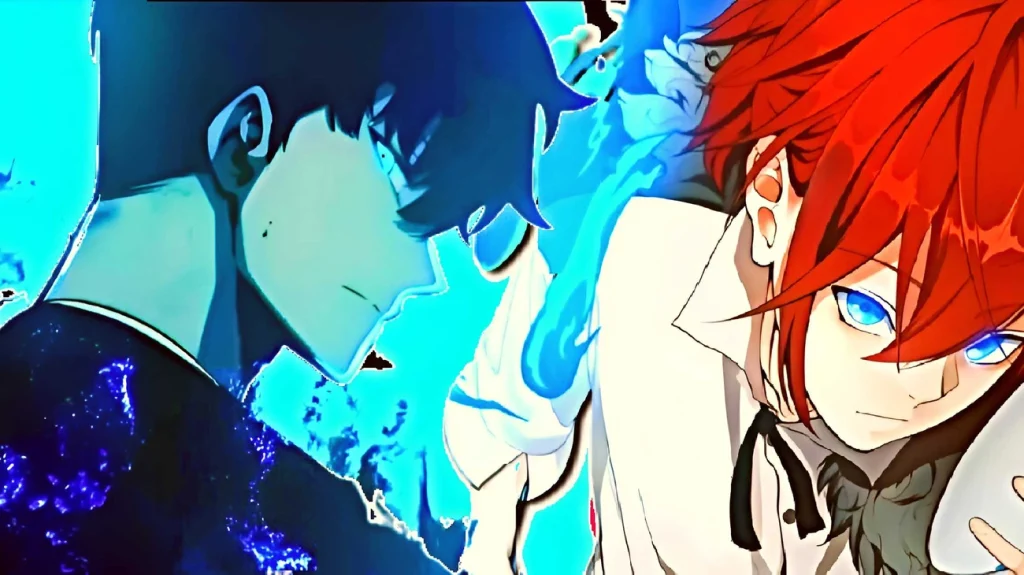
Image Source: Screen Rant
Reincarnation forms the foundation of The Beginning After the End, a powerful system manhwa where a fallen king gets a second chance at life. This unique series explores what happens when royal knowledge meets magical potential in a fantasy world filled with mythical beings.
The Beginning After the End premise
The narrative centers on King Gray, mysteriously reborn as Arthur Leywin in the continent of Dicathen after his untimely death. Upon reincarnation, Arthur retains all memories from his previous life as a ruler. Yet he chooses to live differently this time, seeking genuine purpose beyond power. Remarkably, Arthur awakens as a mage at age three—an extremely rare occurrence. His early encounter with a majestic dragon named Sylvia, who transfers her “beast will” to him, further enhances his already exceptional potential.
The Beginning After the End leveling system
Currently, magic operates through mana cores that grow from black to white through progressive colors: red, orange, yellow, and silver. Mages typically fall into two categories—Augmenters who enhance their bodies with mana, and Conjurers who emit mana externally. Remarkably, Arthur possesses the exceedingly rare ability to manipulate all four elemental affinities (Water, Fire, Wind, Earth). Beyond basic elements, he masters deviant forms like lightning and ice. Furthermore, his unique Realmheart ability allows access to gravity magic.
The Beginning After the End character progression
Arthur’s development represents the perfect blend of past knowledge and new potential. Admittedly, his previously developed combat skills initially misalign with his younger body. Through methodical training under mentors like Virion and later Kordri, he gradually harmonizes mind and body. Evidently, his exceptional perception abilities impress even the Phanteon race. Above all, Arthur develops unique techniques including mana concealment, Mirage Walk for near-instantaneous movement, and the seemingly impossible Mana Transference ability.
Tomb Raider King
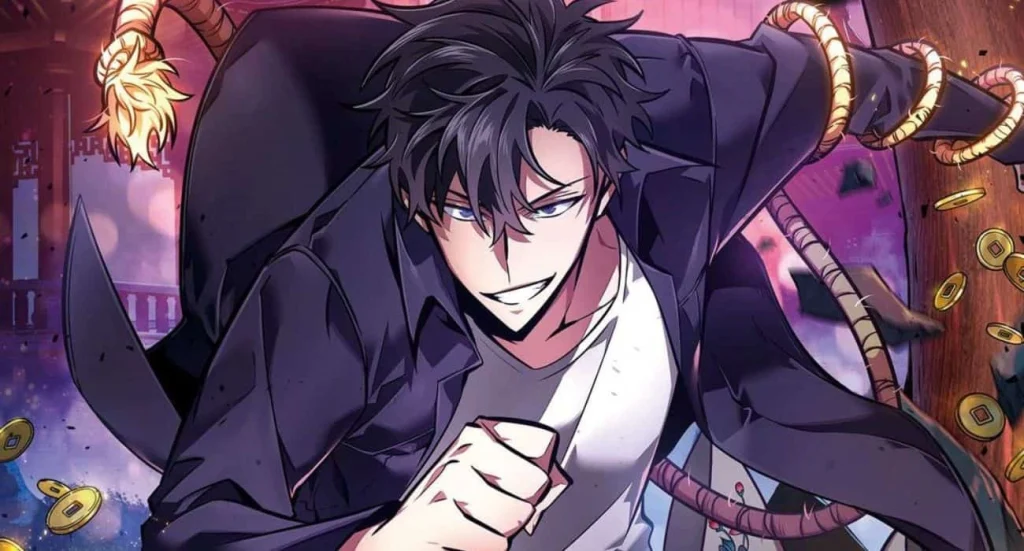
Image Source: Asian Movie Pulse
Tomb pillaging takes on a whole new meaning in Tomb Raider King, a system manhwa centered on mysterious tombs that suddenly appear worldwide containing powerful relics based on mythology, legends, and historical figures.
Tomb Raider King premise
The story follows Seo Joo-Heon, a skilled tomb raider who gets betrayed by his employer Kwon Tae-Joon and left to die. Even though his death seems certain, a mysterious relic called Odin’s Crow sends him 15 years into the past. Now armed with future knowledge, Joo-Heon embarks on a mission to claim all relics before anyone else, famously declaring: “What you own belongs to me. What I own belongs to me”.
Tomb Raider King leveling system
Uniquely, progression revolves around relic acquisition and dominance rather than traditional leveling. Relics are ranked from D (lowest) to SSS (highest). Each relic has its own personality, abilities, and requirements. Fascinatingly, most users can only draw out 70% of a relic’s power, while Joo-Heon can utilize nearly 100%. His extraordinary dominance allows him to subjugate relics that would normally control their users.
Tomb Raider King character progression
Initially driven purely by revenge, Joo-Heon demonstrates remarkable growth throughout his journey. His tactical genius allows him to defeat higher-ranked relics using lower-grade ones. Throughout his quest, he assembles a team including Irene Holton, a woman previously cursed by her relic. His exceptional teaching abilities help others maximize their potential, showing development beyond mere power acquisition.
Conclusion
System manhwa offer a fascinating escape into worlds where characters transform from underdogs to legends through structured progression systems. Throughout this list, we’ve seen ten remarkable stories that capture the thrill of watching protagonists overcome seemingly impossible odds. Solo Leveling may have popularized this genre with Sung Jin-Woo’s incredible journey, but each manhwa brings its unique twist to the leveling concept.
What makes these stories so addictive? Beyond the satisfaction of watching characters grow stronger, these manhwa excel at creating compelling progression systems. Whether it’s Grid’s crafting abilities in Overgeared, Kim Gi-Gyu finding ways around his level-up limitation, or Joo-Heon’s relic dominance in Tomb Raider King – each protagonist follows a different path to power.
Additionally, the best system manhwa balance power progression with meaningful character development. Take Ho-jae from The Tutorial Tower Is Too Tough, whose psychological transformation is just as significant as his growing abilities. Similarly, Yeon-woo’s journey in Second Life Ranker demonstrates how revenge can evolve into something more profound through his tower-climbing experience.
Though system mechanics differ across these stories – from Arthur’s mana manipulation in The Beginning After The End to Sehan’s knowledge from a previous timeline in Return to Player – they all satisfy our craving for progression-based narratives. The joy comes from watching characters exploit their systems, overcome their limitations, and ultimately redefine what seemed possible.
After reading these ten exceptional manhwa, you’ll likely find yourself drawn to their distinct approaches to character growth and world-building. Whether you prefer tactical genius, crafting mastery, or pure combat prowess, this genre offers something for every reader who enjoys watching characters transform from zero to hero through determination and clever system manipulation.
FAQs
Q1. What are some of the most popular system manhwa series? Some of the most popular system manhwa series include Solo Leveling, Second Life Ranker, Overgeared, The Beginning After the End, and Tomb Raider King. These stories feature protagonists who gain access to game-like systems that allow them to level up and become incredibly powerful.
Q2. How do leveling systems typically work in these manhwa? Leveling systems in these manhwa often involve gaining experience points, completing quests, and allocating stat points to increase attributes like strength, agility, and intelligence. Characters may also learn new skills, acquire powerful items, and unlock special abilities as they progress.
Q3. What makes system manhwa so appealing to readers? System manhwa appeal to readers through their blend of fantasy, action, and progression. Readers enjoy following characters as they grow from underdogs to overpowered heroes, strategically using their abilities to overcome challenges. The game-like elements also add a layer of familiarity and excitement.
Q4. Are there any unique twists on the system manhwa formula? Yes, some series put interesting spins on the formula. For example, The Player Who Can’t Level Up features a protagonist who must find alternative ways to grow stronger, while Overgeared focuses on crafting abilities rather than combat. These twists help keep the genre fresh and engaging.
Q5. How do system manhwa compare to traditional fantasy stories? System manhwa differ from traditional fantasy by incorporating explicit game-like mechanics and numerical progression. While both may feature heroes growing in power, system manhwa tend to be more focused on strategic use of abilities and stats. They also often blend modern and fantasy elements in unique ways.






